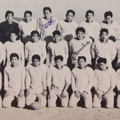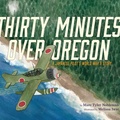In one weekend, a video posted by UCLA student Alexandra Wallace exploded all over YouTube, spurring responses in only a matter of hours, ranging from public service announcement-type videos made by concerned fellow students to lighthearted spoofs and angry retorts—even to videos and comments more ignorant and hateful than Wallace’s original.
Wallace initially posted the video on her own YouTube channel then removed it, only for it to be replaced soon after by numerous clones. The video is a rant about the “hordes of Asians that UCLA accepts into [her] school every year” distracting other students in the library with their “ching chong ling long ting tong” phone conversations and bad manners.
I have nothing I’d like to say to Alexandra Wallace that hasn’t already been said, and frankly I’m not sure that this video even deserves the attention it’s been getting. Why should we be so incensed about some thoughtless remarks made by one college girl who in less than four minutes has managed to tarnish her own name, alienate an entire race of people and their friends, jeopardize her future, and make herself look like an idiot?
In a friend’s opinion, Wallace’s words are not “racist” so much as they are simply ignorant, thrown out without malicious intent. But, he wonders, is racism that comes from people who don’t even realize they’re being racist better or worse than its alternative of blatant, self-conscious racism?
As I’ve written before—and as Avenue Q has more eloquently put to music—everyone’s a little bit racist, and in certain scenarios laughing at racism is perfectly socially acceptable. So where is the line between acceptable racism and offensive/dangerous racism? Is it okay when we caricaturize our own race like Peter Chau in his parody of Chinese eating behavior? Or when people of color do it to each other (see almost any of Indian Canadian Russell Peters’s stand-up bits)? Can white people call “Stuff White People Like” or “White People Problems” racist?
If Peter Chau’s videos are received so positively, why did people overwhelmingly dislike the Alexandra Wallace response video—since removed—made by another UCLA student, an earnest Asian American guy who claimed to see truth in Wallace’s complaints, and argue that not being able to distinguish one Asian group from another (after Wallace’s “ching-chong” Chinese bit, she says maybe the Asian students are checking on all their family in tsunami-hit Japan) isn’t ignorant because he can’t tell the difference either. While his video was still available, people left comments calling him a twinkie (yellow on the outside, white on the inside, the Asian version of an Oreo)—I can’t help seeing a certain parallel to the Japanese Americans called “dogs” and traitors because they asserted their Americanness during WWII despite being forced into concentration camps.
Taking a break from the Alexandra Wallace issue, here’s an incidence of ignorance way beyond the borderline of “it wasn’t meant maliciously; maybe they just don’t understand”: this collection, circulating Facebook, of status updates calling the tsunami in Sendai an act of retribution for Pearl Harbor. This is a pretty big jump, I know, from one college girl ranting from her dorm room about Asian students in the library to a sampling of people celebrating the death of 10,000 civilians in a horrific natural disaster. But both come, I think, from a similar place of ignorance and poor logic that leads average, otherwise harmless people to feel that their supremacist beliefs (whether racist, nationalistic, sexist, or otherwise) are acceptable and right.
My first inclination when I saw the Pearl Harbor status update collection was to read through the whole thing, let myself be angry, and repost it on Facebook with some “isn’t it sad for these idiots”-type commentary. My boyfriend cut me off, telling me it’d only make me sad about humanity. On my own later, I couldn’t help myself from searching for the link again and reading through it all. He was right. I felt sad about humanity—upset, too, and ready to share the offending link on my wall. I even typed out a note about the atomic bombs, the incarceration, the occupation of Japan, and the fact that our shared humanity should make us want to be decent to each other.
In the end, though, I didn’t repost it, and I didn’t repost the Alexandra Wallace video either. For one thing, I doubt many of my Facebook friends would feel differently about either link than I do, so nobody would learn anything, we’d all just feed off each other’s anger, and probably off each other’s smugness too, thinking we’d never say anything so racist or ignorant because we’re well-educated and therefore englightened (anyway, Wallace goes to one of the best universities in the country, so there goes that argument).
But my main reason for holding off on sharing these links was that after the initial shock, I couldn’t muster up enough anger. Though Wallace’s rant is indicative of larger societal problems, I don’t think we should direct all our frustration about these issues at her. While she’s earned her humiliation, she doesn’t deserve the threats she’ll no doubt receive, let alone the fear for her safety, or the infamy that could haunt her name for the rest of her life. She’s just one college kid who made a mistake, albeit a pretty huge one.
As for the Pearl Harbor avengers, they’re probably not embarrassed at all about their comments and what do they care if they offended one more Japanese American on Facebook who they don’t even know? What will they say when another natural disaster strikes in the United States? Depending on where it happens, a handful of people in other regions will probably claim it was deserved too, as some did after Hurricane Katrina.
One thing is for sure: racism, nationalism, ignorance... these will never be solved completely. So where does that leave us? What are the right steps to take to at least begin to diminish them?
© 2011 Mia Nakaji Monnier







